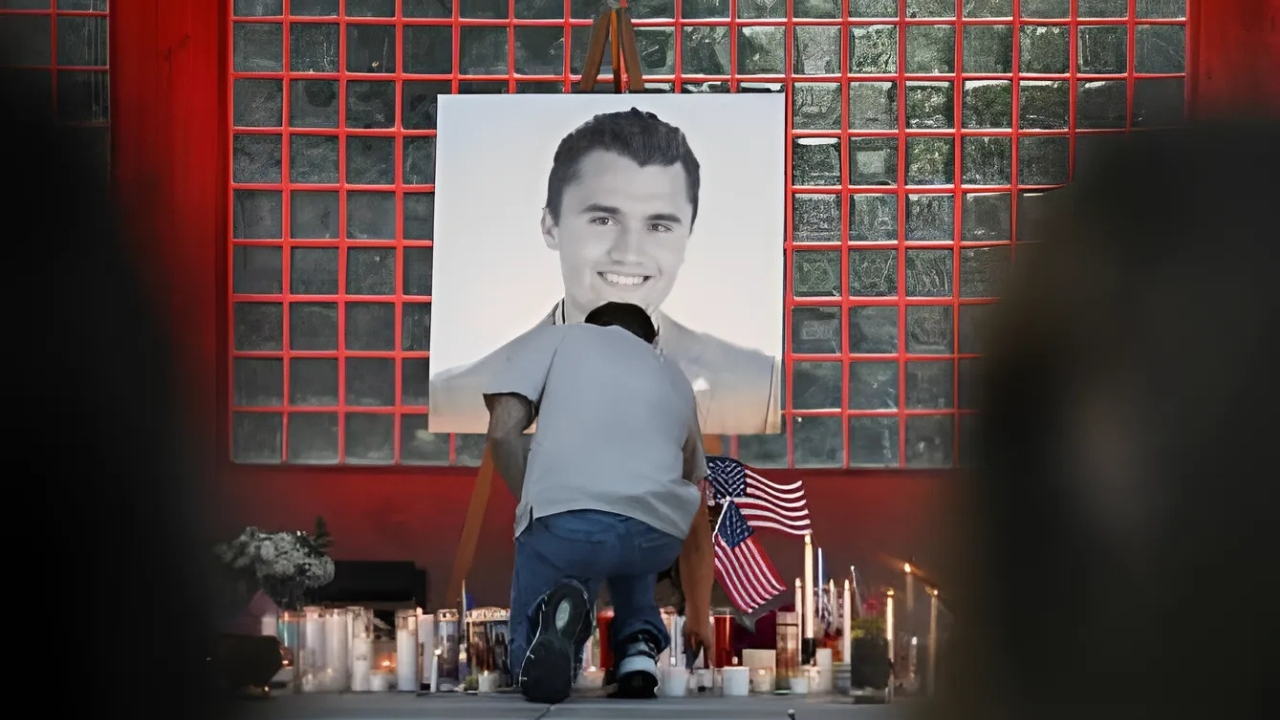
UAE and Yemen Strengthen Legal and Judicial Cooper
UAE and Yemen attorney generals met in Abu Dhabi to strengthen legal ties, enhance public prosecutio

Photo:Reuters
The announcement by former U.S. President Donald Trump that the primary suspect in the killing of conservative activist Charlie Kirk has been caught “with a high degree of certainty” has set off a new wave of discussion in American politics. The tragic death of Kirk, who was both a rising star within conservative circles and the founder of Turning Point USA, sparked outrage, grief, and intense debate. Trump’s statement adds yet another layer of gravity to a case rooted not only in crime but also in the wider political and cultural tensions of the nation.
Who Was Charlie Kirk?
Charlie Kirk represented a new strand of conservatism in the United States. As the founder of Turning Point USA, an organization targeting college students and young conservatives, he built a strong base among youth activists. Frequently defending right-wing values on national media and through speeches, Kirk positioned himself as one of the younger voices carrying the conservative movement into the next generation.
Kirk had close connections with Donald Trump and the Republican establishment. He was often seen at rallies, conferences, and televised debates, defending conservative ideologies on issues such as freedom of speech, immigration, and the role of government in education. Admired intensely by supporters and often criticized by opponents, Kirk was at the center of public debates on America’s future.
His sudden killing earlier this month left his supporters shocked. To many, it was not just the loss of a person, but the silencing of a promising conservative leader whose influence was still growing.
The Killing and Its Aftermath
News of Kirk’s death spread quickly across the United States. Reports indicated that law enforcement launched investigations immediately, deploying both state and federal resources. The nature of the crime and Kirk’s political prominence ensured that the case received enormous media attention.
Public vigils and tributes followed across Republican communities and student groups aligned to Turning Point USA. Leaders from both political parties, despite their differing political views, condemned the crime and extended condolences to Kirk’s family.
Yet, amid the mourning, questions persisted over who could have orchestrated such an act and what the motive might have been. Was it a personal dispute, a politically motivated killing, or an act of lone violence? These questions continue to hover in the air, even after Trump’s declaration about the arrest.
Trump’s High-Profile Announcement
When Donald Trump addressed supporters and revealed that the suspect had been caught “with a high degree of certainty,” it shifted the tone of the public conversation. Trump’s words implied not only progress but near-closure in a case gripping headlines.
However, he declined to reveal many details about the identity of the suspect or the circumstances of the capture. This approach created both relief and uncertainty. Relief, because it signaled that investigators had made a breakthrough. Uncertainty, because the lack of concrete details leaves open speculation and rumor.
For Trump’s base, the announcement was seen as reassurance that justice was on the way. For critics, it raised questions about whether political leaders should be the first to frame law enforcement updates, or whether such declarations risk influencing judicial processes.
Law Enforcement and the Investigation
Officials have not yet delivered a comprehensive account of the arrest, but reports indicate that a combination of surveillance footage, witness accounts, and digital tracing played major roles. Such methods are increasingly central to major investigations, particularly in high-profile crimes involving public figures.
The FBI and local police units were both believed to be working on the case, reflecting the seriousness with which authorities treated Kirk’s killing. High-profile crimes involving political figures or activists often fall under federal jurisdiction due to their potential to incite wider unrest or to involve interstate elements.
The next legal steps are expected to involve formal charges, courtroom hearings, and eventual trial proceedings. For now, officials have yet to confirm when detailed disclosures will be made, but public anticipation is undeniably high.
Political and Social Reactions
The killing of Charlie Kirk has not been viewed solely as a criminal act—it has triggered deep and emotionally charged responses across the political spectrum.
Among conservatives, Kirk’s death has been framed as a targeted assault on their movement. Many view him as a symbol of the younger generation of activists unwilling to compromise on their values. His killing, thus, has been interpreted as a direct hit to the cause they believe he championed.
Among moderates and political observers, the tragedy has underscored the dangers faced by outspoken public figures in a divided America, where politics often crosses into personal threats and violence. The episode has reignited conversations about political safety, public discourse, and the responsibilities of media and leadership in reducing hostility.
It is worth noting that leaders from across the aisle have condemned the crime, marking a rare moment of shared grief in an otherwise fractured political landscape.
The Legacy of Charlie Kirk
While the investigation continues and the suspect awaits judicial action, many of Kirk’s supporters have turned their focus on his legacy. His work creating a platform for conservative students has left an organizational structure that continues to function even in his absence.
Turning Point USA will likely remain central to his legacy, acting as a hub for hundreds of activists who were inspired by his convictions. Kirk’s ability to give voice to the anxieties of young right-wing activists in a largely liberal academic environment was his defining trait. His loss leaves a gap not easily filled, but his movement is likely to outlive him.
Trump himself emphasized this point, calling Kirk a “true patriot” and a fighter for America’s future. These words reinforced the sense that Kirk’s work will ripple through political activism far beyond his lifetime.
What Comes Next
The coming weeks will determine how this case unfolds. Authorities have a responsibility to balance public demand for transparency with the need to preserve the integrity of the legal process. The accused suspect’s trial will be not only a test of facts and evidence but also of how much political currents influence legal proceedings.
With Trump making the public announcement, all eyes will be on how much of his certainty can be matched by legal confirmation. If the courts find sufficient evidence for conviction, Trump’s words will gain authority. If not, questions about political influence and premature declarations are bound to resurface.
In either outcome, America will continue to grapple with the underlying themes this case has raised—political polarization, the risks faced by public figures, and the fragility of civil discourse in a nation already deeply divided.